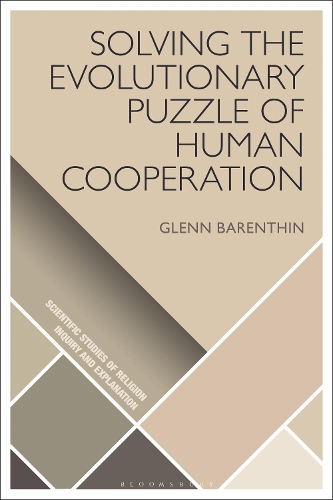
Solving the Evolutionary Puzzle of Human Cooperation
(Paperback)
Publishing Details
Solving the Evolutionary Puzzle of Human Cooperation
By (Author) Glenn Barenthin
Bloomsbury Publishing PLC
Bloomsbury Academic
25th March 2021
United Kingdom
Classifications
Tertiary Education
Non Fiction
Evolution / Evolutionary biology
History of religion
Anthropology
218
Physical Properties
Paperback
248
Width 154mm, Height 232mm, Spine 14mm
400g
Description
In this book, Glenn Barenthin provides a new solution to a key question in the cognitive and evolutionary study of religion: why do humans cooperate What led humans, uniquely among animals, to have large-scale civilizations with unprecedented cooperation One explanation, propagated by the Big God Proponents (BGP), argues that a moralizing God is the crucial motivator for the pro-social behaviour necessary for large scale civilization. To explore this idea, Barenthin provides a critical assessment of the evidence provided by the BGP, and also discusses the place of God in our moral thinking. However, using evidence from anthropology, history, cognitive science, psychology and game theory, Barenthin presents a new theory: that the evolutionary pressures faced by our forebears paved the way for emerging humans to engage in what he terms thin cooperation. This type of cooperation requires individuals to comprehend the reasons for their actions, and it is often done with others in mind. Finally, Barenthin argues that humans also have the capacity for thick cooperation, which is made possible by those fighting for the rights of strangers in an attempt to make the world a fairer place for a greater number of people.
Reviews
Glenn Barenthins book on human cooperation is a fascinating work. It is a terrific survey of modern evolutionary thinking about cooperation, showing how very dated are the myths of killer apes. Throughout there is discussion of the relevance of such science for religious thinking. Does morality demand a belief in a deity, or can the skeptic be as good a person as the Christian or Jew or Muslim Barenthins conclusions are stimulating and pertinent. Highly recommended. * Michael Ruse, Lucyle T. Werkmeister Professor of Philosophy, Florida State University, USA *
Author Bio
Glenn Barenthin is Professor at the University of Guelph-Humber, Canada. He has taught courses on criminal law, forensic techniques, criminal investigations and the idea of human rights.
